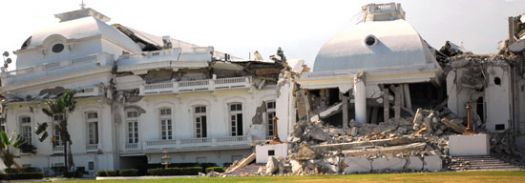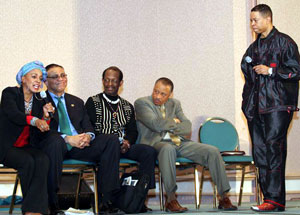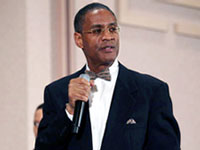-Contributing Editor-

(FinalCall.com) – A domestic Marshall Plan must be initiated to rebuild the Haitian capital devastated by a Jan. 12 earthquake, but this plan must come without the colonial mischief that has been used to undermine and destabilize the Western hemisphere’s first independent Black republic. That was the message from panelists at a Feb. 27 Saviours’ Day 2010 workshop on “Haiti sovereignty, disaster relief & rebuilding with dignity.”
The panelists reviewed the history of Haiti and explained why Western powers have not allowed the island nation to escape their oppressive grip to truly be independent and self sufficient. Panelists also recounted scenes of total destruction, illness and death that many witnessed in tours of the country since the earthquake struck.

Echoing throughout their remarks was the demand that Haitians at the grassroots level be involved in the reconstruction of their country.
“The fight is for the empowerment of the people,” said attorney Lionel Jean Baptiste of the Haitian Congress to Fortify Haiti. “We must make direct alliances with the folks at the bottom” and implement a program that focuses on people instead of a program that generates money for Haiti’s enemies, he said.
Former Haitian Consul General Harry Fouche agreed. “We appreciated the response,” he said of the aid directed toward his country, “but as the weeks went by we had a fear that the response was turning into an industry and that aid may not reach our people. We must speak out that the money raised for Haiti must be spent for Haiti.”
Panelists noted that Haiti’s 13-year struggle for independence–from 1791 until 1804–sparked a spirit of revolution among Black people in the Caribbean and South America. Western powers have not forgiven Haiti for that and have imposed embargoes and crippled the country with billions of dollars of debt that still exists today.
The persecution continued when Haiti’s first democratically elected president, Jean Bertrand Aristide, spoke against colonial injustice and called for reparations for Haiti and the return of money it was forced to pay France when Haiti won its independence, panelists said. President Aristide was set upon by the U.S. government and ultimately forced into exile in 2004 when the U.S. military literally took him from office, they noted.
Even the administration of President Barack Obama appointed a “career diplomat with ties to the C.I.A.” as ambassador to Haiti while appointing donors as ambassadors to Trinidad, the Bahamas and other Caribbean islands, attorney Baptiste said.
Responding to a question from moderator Ramonski Luv, a popular Chicago radio personality, attorney Marguerite Laurent of the Haitian Lawyers Leadership Network (HLLN) said Haiti’s crisis is man-made if you consider that Haiti’s poverty is man-made.
“U.S. policy wants (Haiti) to not subsidize public health or any social justice when we have subsidized (the U.S.) for 300 years. Haiti has subsidized Iowa farmers who have dumped their rice in Haiti. The U.S. told Haitian people, ‘we will give you factory jobs so get off your land’. You told Haiti not to invest in its people,” she said.

In a power point presentation, Nation of Islam Minister of Health Abdul Alim Muhammad added another dimension to the question of Haiti’s crisis being man-made. He noted reports of evidence that the earthquake was a result of U.S. military activities using high frequencies to cause shifting of earthquake fault lines. The reports note that oil has been discovered off the coast of Haiti and critics of U.S. policy speculate that the earthquake was caused so foreign militaries would be allowed into the country under the guise of humanitarian assistance.
With 20,000 U.S. troops in Haiti, one would think they would be distributing food, Dr. Muhammad said. “The only troops I saw were protecting Citibank,” he said.
Ron Daniels of the Haiti Support Project said the earthquake was “an equal opportunity destroyer,” but the silver lining is the devastation could bring people together.
“The Haitian people must be at the center of designing a plan, not just the political class, but the voices of those in the tent cities,” he said. “This is an opportunity to bridge some of the divides that traditionally have been part of the fracturing of Haitian society.”












